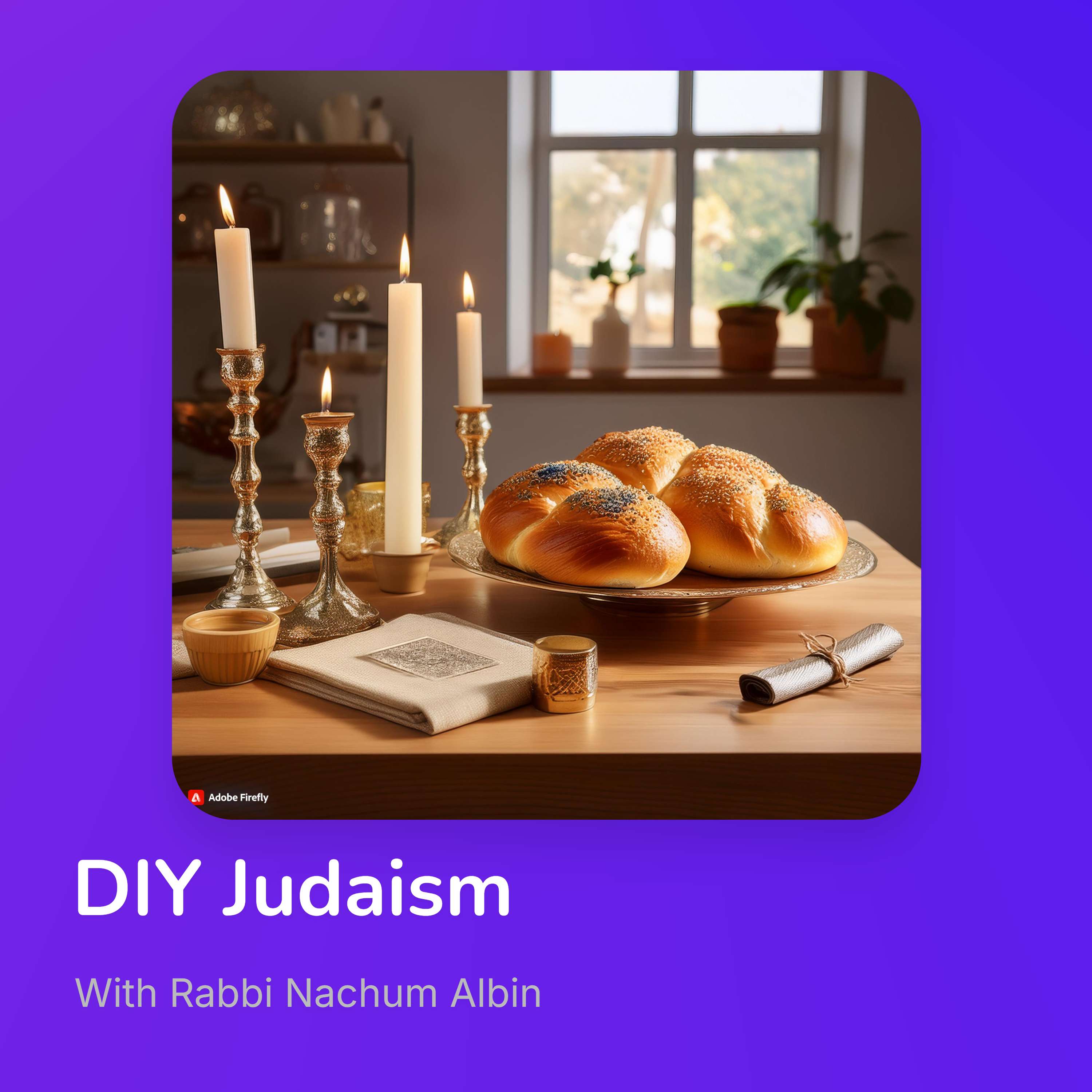[00:00:00] Dip the apple in the honey. Hi, I'm Rabbi Nachum albin, and welcome to do it yourself Judaism, where we learn about practical Judaism in your own place, at your own pace. Welcome back. This is podcast number five. We will discuss the holiday of Sukkot coming up. So any discussion of Sukkot really begins with Yom Kippur, because Sukkot, besides coming just four days after Yom Kippur, is actually intrinsically connected.
[00:00:32] We are taught that Yom Kippur represents returning to Hashem, returning to G D out of reverence, awe. We're concerned with our fate over this coming year, and we want to do our best to clean our slate, to merit a good year. That's more of our feeling focused on us, our feelings of how negative interactions we may have had with or lack of connection to our Judaism could negatively impact our upcoming year. Sukkot is about coming closer to God out of love, out of a desire for connection, desire. We want to be connected to God. The sages teach us that actually connecting out of love is much deeper, much holier, much higher than connecting out of fear. Connecting out of fear is I'm afraid to speed, let's say, or I'm afraid to do something wrong because I don't want to get in trouble, I don't want to get punished. When you're connecting out of love means I love the person so much. I love the being. I love God so much. I don't want to do something that would ever hurt him. I don't want to do something that would cause pain, pain to God, so to speak, by not following what he wants us to do, what he's told us in the Torah. Yom Kippur is the 10th day of the ten days of repentance, often called ten days of repentance, better known as the ten days of return. The ten days to beginning from Rosh Hashanah, culminating in Yom Kippur, to return to God.
[00:02:07] We're taught there similar ten days from Yom Kippur through Sukkot. The next ten days is a time to return to God out of love, find our closeness to him, things that build our relationship, and that culminates with the 11th day after Yom Kippur is called Hosanna Rabba, the last day of the Sukkot holiday, and that day is traditionally, although Yom Kippur is called the day of the sealing, as is known from the high holiday prayers and Rosh Hashanah, we are inscribed. And Yom Kippur, the decrees are sealed in hasidic literature, in kabbalistic literature, the 11th day after Yom Kippur, the end of the Sukkot holiday, is the day that the messages are, so to speak, sent out.
[00:02:55] So it's also connected to the high holidays. That gives us a chance to connect, to approach goddess through love. Now, how do we do that? And what does it have to do with Sukkis? Sukkis. One of the best ways to connect through love is if you appreciate what you've gotten from someone. And Sukkos in Israel, for sure, even in other parts of the world, is at the end of the summer, is at the end of the harvesting and gathering in time of year. And when you look, and it's no coincidence, when you look at all the bounty that you've gathered in the look at the blessings that you have in your life, that helps you love and appreciate the source of all those blessings, we think about that, yes, we have to thank and appreciate those who help us earn our living, but it all has to come back to that. It comes, at its core, comes from God. And think about all the blessings that we have in our lives. That's one of the messages of the sukkah. The sukkah is a simple hut that we sit in. We live in as much as possible. Over the sukkot holiday.
[00:04:03] It doesn't even have to have four walls.
[00:04:09] The sukkah is spelled with the hebrew letters samach, chaf, and hay. If you look them up, a picture of them, the samach is completely round. It completely has four sides. The sukkah, ideally, should have four walls. A chaf is three sides. Sukkah is kosher with three walls. And even, like a hay, two full walls in a bit, if it's done properly, you can have a sukkah that's almost open on two full sides. That's still kosher. It's a very simple dwelling. It cannot have a permanent roof. The sukkah is the essence of simplicity. And when we move out of our houses, we move out of that box that we're in on a daily basis. With all the bounty, we start to feel and appreciate what we really have. And when we have that appreciation, we begin to develop a connection to an appreciation to all the blessings that we have throughout the year. And that begins to build our connection to GD, to Hashem, out of love, allowing us to have a stronger desire to focus on our Torah and our mitzvahs, because we want to do this for God, not because we have to. That is the deeper connection that we have. Even on Yom Kippur, on Sukkot, even over Yom Kippur.
[00:05:30] Thank you for listening. Be sure to hit the follow button so you'll get the next episodes as they come out. Your questions and comments inspire my next episodes, so reach out to
[email protected] nachumalbin at t o r a h u b.org and you'll be the inspiration of the next episode. Till then, have a great one.


